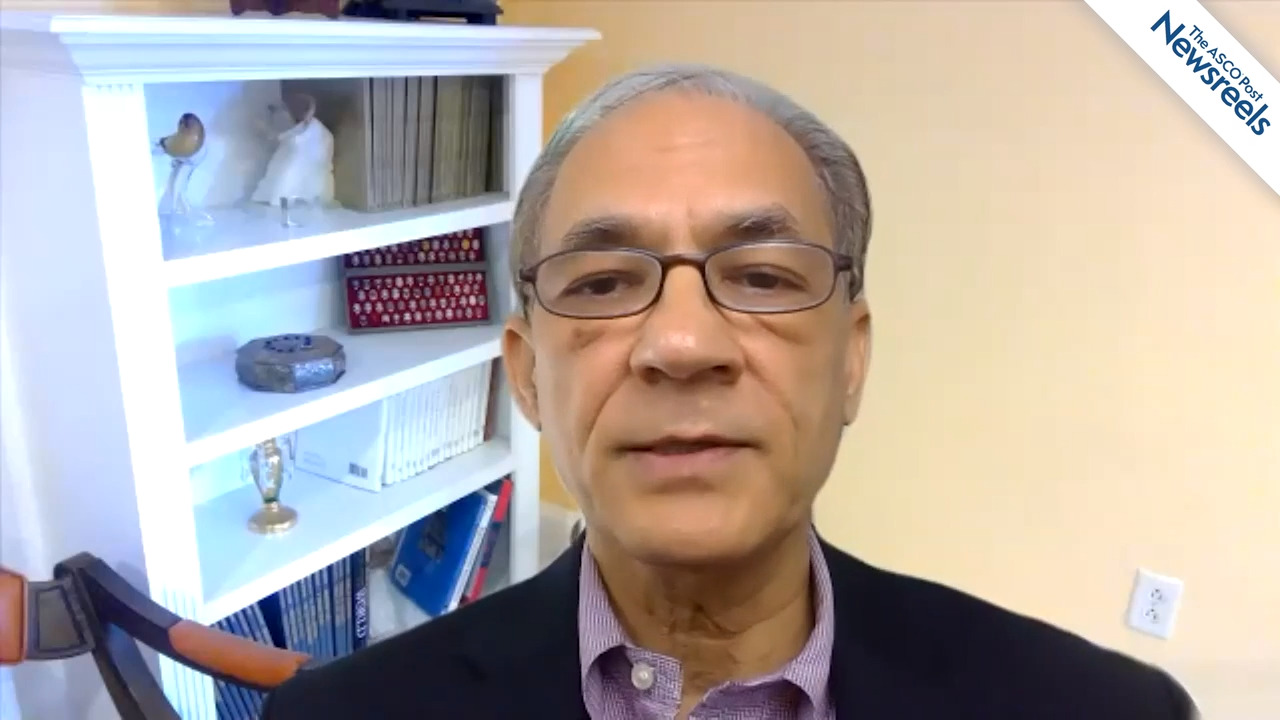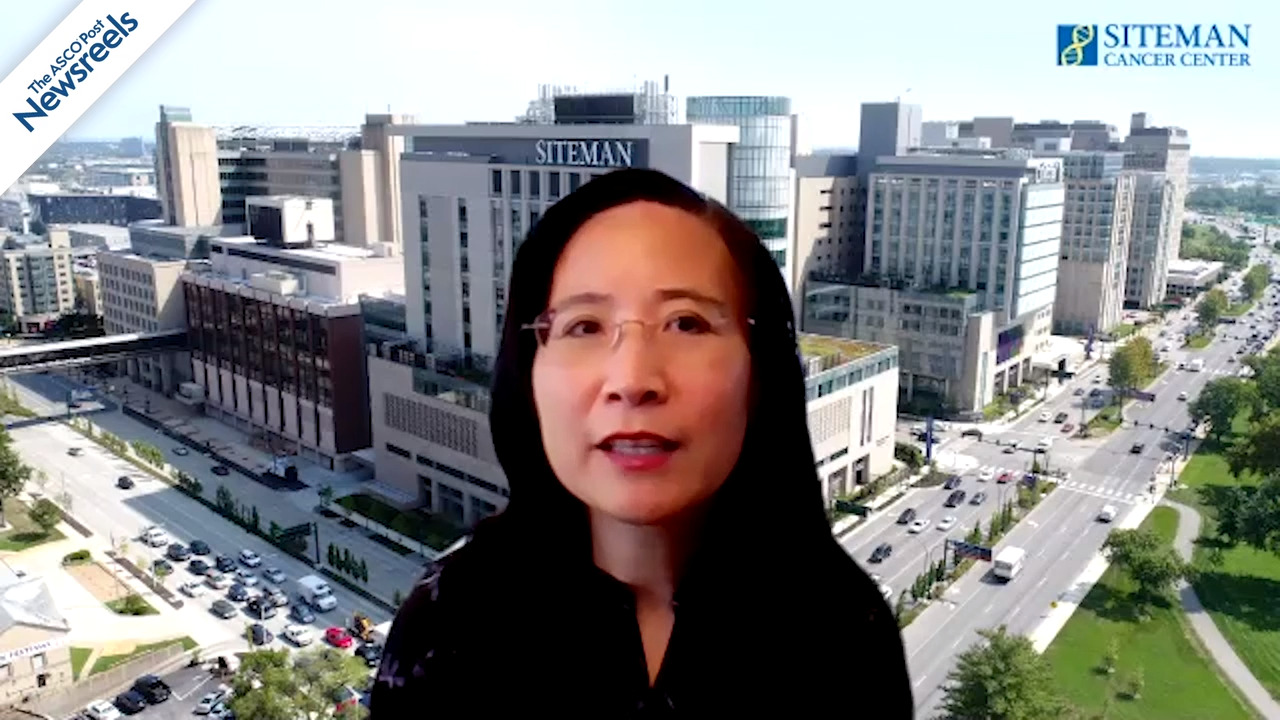Howard A. Burris III, MD, FACP, FASCO, on the ASCO20 Virtual Scientific Program: After Action Report
ASCO20 Virtual Scientific Program
Howard A. Burris III, MD, FACP, FASCO, Immediate Past President of ASCO and current Society Board Chair, talks about how the meeting went, with its record-breaking attendance and new format.
The ASCO Post Staff
Nikhil C. Munshi, MD, of Dana-Farber Cancer Institute, discusses initial results from the KarMMa tria, showing that idecabtagene vicleucel, a B-cell maturation antigen-targeted CAR T-cell therapy, demonstrated deep and durable responses in patients with heavily pretreated relapsed or refractory multiple myeloma. Efficacy and safety data support a favorable clinical benefit-risk profile across the target dose range (Abstract 8503).
The ASCO Post Staff
Cynthia X. Ma, MD, PhD, of Washington University, discusses results from the ALTERNATE trial, which showed neither fulvestrant nor fulvestrant plus anastrozole significantly improved endocrine-sensitive disease rate compared with anastrozole alone in postmenopausal patients with locally advanced estrogen receptor–positive, HER2-negative breast cancer (Abstract 504).
The ASCO Post Staff
Richard L. Schilsky, MD, Chief Medical Officer of ASCO, talks about some of the most important and practice-changing findings presented this year at the ASCO20 Virtual Scientific Program, including the use of targeted and immunotherapies in earlier lines of therapy, where they have made a significant impact.
The ASCO Post Staff
Tingyan Shi, MD, PhD, of Zhongshan Hospital, Fudan University, discusses study results that showed secondary cytoreductive surgery in selected patients extended progression-free survival and might contribute to long-term survival (Abstract 6001).
The ASCO Post Staff
Nirav Niranjan Shah, MD, of the Medical College of Wisconsin, explores whether autologous transplantation, in patients with relapsed diffuse large B-cell lymphoma who achieve only a PET/CT-positive partial remission, is appropriate in the era of CAR T-cell therapy (Abstract 8000).





